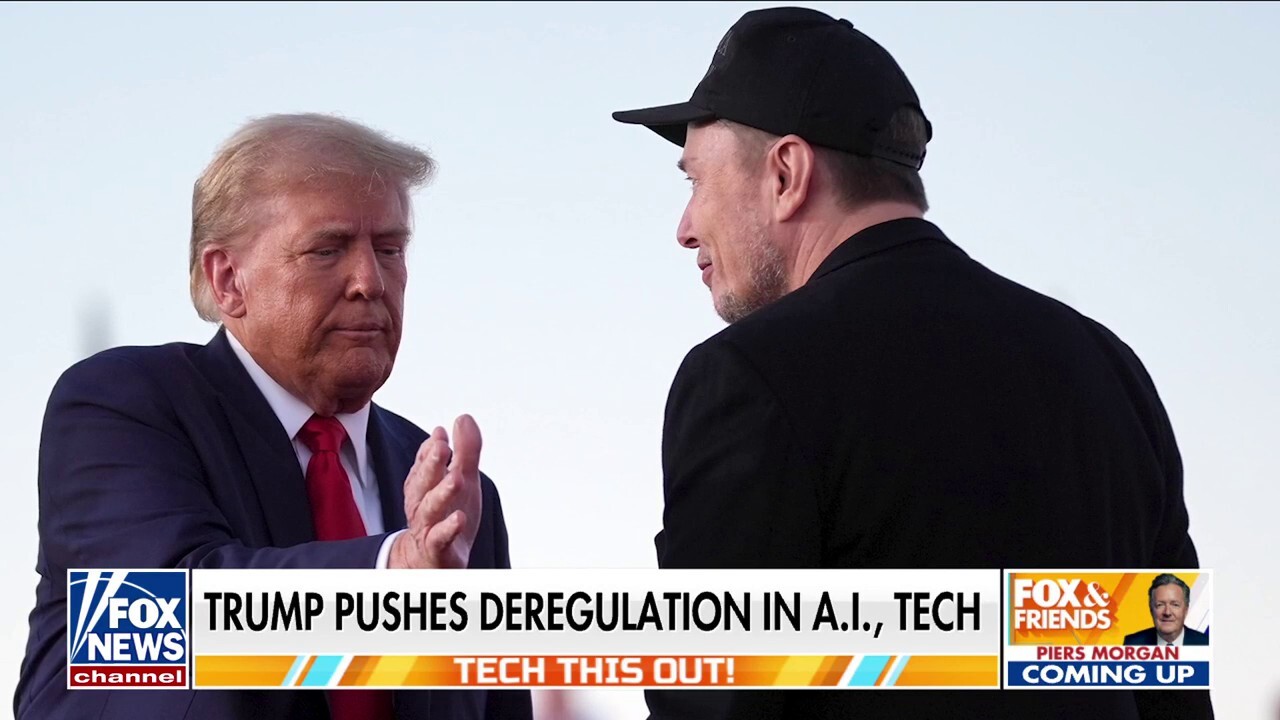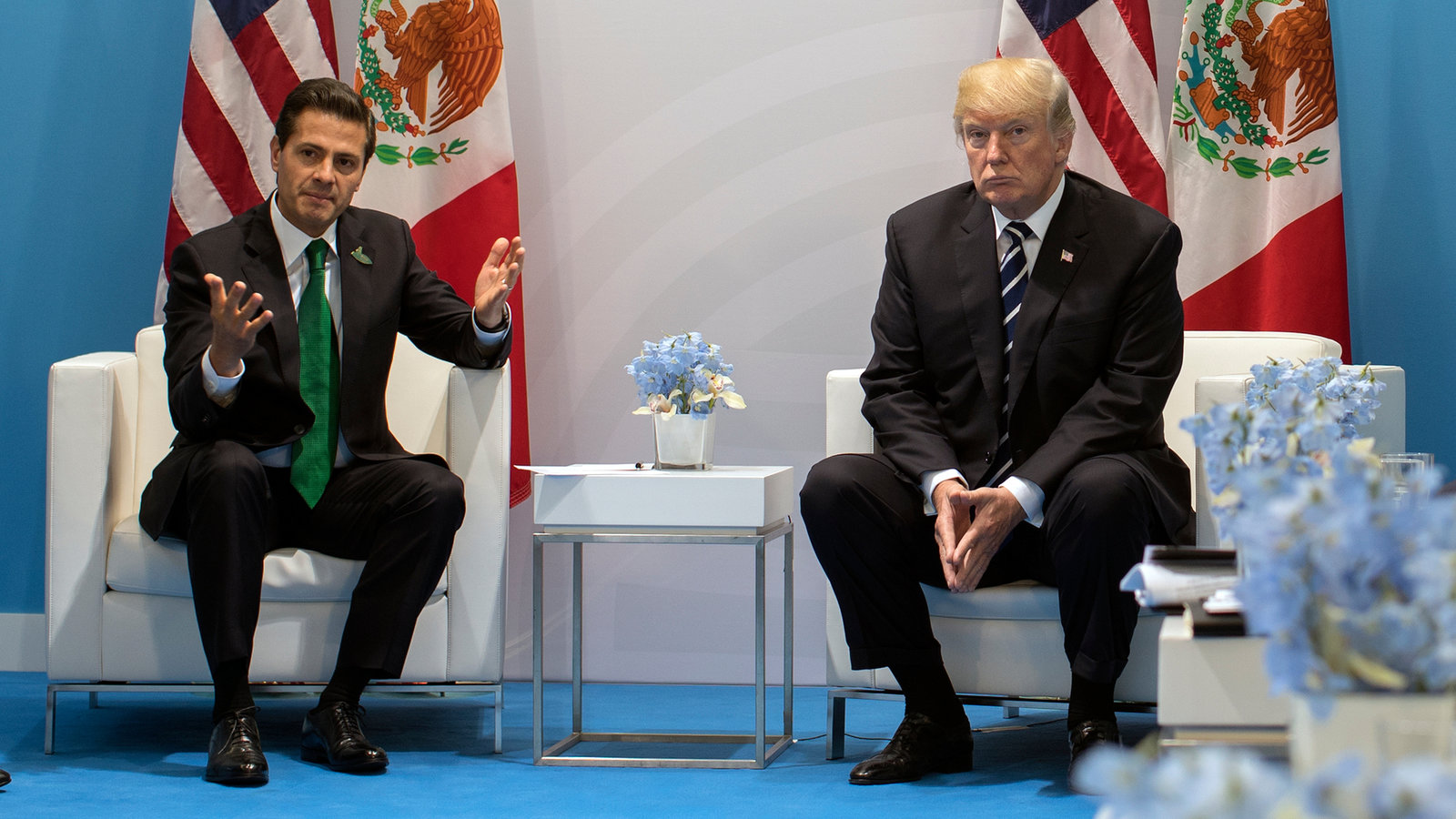Trump Administration's Influence On European AI Policy

Table of Contents
Trade Wars and Tech Nationalism: Restricting Data Flow and Collaboration
The Trump administration's protectionist trade policies significantly hampered the transatlantic data sharing vital for AI development. This "tech nationalism" approach erected barriers to the free flow of information, a cornerstone of successful AI research and innovation. The emphasis on American technological dominance fostered an environment of mistrust and hindered collaborative projects crucial for advancing the field.
- Examples of specific trade disputes: The steel and aluminum tariffs, as well as disputes surrounding digital services taxes, created uncertainty and directly impacted the ability of AI companies to seamlessly transfer data across the Atlantic. This uncertainty stifled investment and slowed the pace of innovation.
- Impact on joint research ventures: Collaborative research initiatives between US and EU institutions, many focused on AI advancements, faced delays and funding uncertainties due to these trade frictions. The difficulty in sharing data and coordinating efforts resulted in a less efficient and less productive research environment.
- Specific AI companies affected: Companies reliant on transatlantic data flows for training their AI models, particularly those operating in sectors like finance and healthcare, experienced considerable challenges navigating the complex web of new trade restrictions. This led to increased costs and potentially reduced competitiveness.
Regulatory Divergence: Different Approaches to AI Governance
A stark contrast emerged between the Trump administration's largely laissez-faire approach to AI regulation and the EU's proactive stance, exemplified by the General Data Protection Regulation (GDPR) and the burgeoning AI Act. This regulatory divergence significantly shaped European AI policy, propelling the continent towards independent regulatory pathways.
- Specific examples of EU regulations: GDPR's emphasis on data privacy and individual rights fundamentally altered how data is collected, processed, and used in AI development within Europe. The proposed AI Act further aims to regulate high-risk AI systems, establishing a framework distinctly different from any existing US regulatory approach.
- Different regulatory philosophies: The US generally favors a lighter-touch approach, prioritizing innovation and competition, while the EU emphasizes a more risk-averse, rights-based regulatory framework for AI. This fundamental difference in philosophy has led to diverging regulatory landscapes.
- Long-term consequences: This divergence may lead to the emergence of distinct AI ecosystems, with Europe potentially becoming a global leader in trustworthy and ethical AI, while the US maintains its focus on rapid innovation. This could affect future transatlantic collaborations and the global dominance of specific AI technologies.
The Rise of "AI Sovereignty" in Europe: A Response to US Policies?
The Trump administration's policies inadvertently fueled the push for "AI sovereignty" within the EU. The desire to reduce dependence on US technology and data, coupled with concerns about data security and privacy, spurred European efforts to establish greater autonomy in AI development and deployment.
- Examples of EU initiatives: The European Commission's substantial investments in AI research and development, along with initiatives to foster a robust European AI ecosystem, reflect this ambition for AI sovereignty. This includes supporting the development of European AI champions and establishing ethical guidelines.
- Strategic implications: European AI independence carries significant strategic implications, potentially reducing reliance on US technology and fostering a more balanced global AI landscape. This could also strengthen Europe's position in international AI governance discussions.
- Economic and geopolitical factors: The desire for economic competitiveness and the geopolitical implications of relying heavily on a single superpower for critical technology underpin the European drive for AI sovereignty. This represents a shift in global power dynamics.
Long-Term Effects on the Transatlantic AI Landscape
The Trump administration's policies have left an indelible mark on the US-EU relationship concerning AI. While collaboration remains vital, the seeds of divergence have been sown. The future will likely witness a mixture of competition and cooperation.
- Predictions for future transatlantic AI collaborations: Despite the regulatory differences, future collaborations in areas like fundamental AI research and tackling shared challenges (climate change, healthcare) are still likely. However, these collaborations might be more strategically focused and less reliant on free-flowing data exchange.
- Potential for continued divergence: It's highly probable that the regulatory frameworks will continue to diverge, leading to different approaches to AI development, deployment, and governance. This could result in the emergence of two distinct AI ecosystems.
- Broader geopolitical implications: The US-EU dynamic will continue to shape the broader global AI landscape, potentially impacting other countries' approaches to AI governance and influencing international norms. This will require careful monitoring and diplomatic engagement.
Conclusion: Understanding the Trump Administration's Legacy on European AI Policy
The Trump Administration's Influence on European AI Policy is undeniable. Trade wars fueled tech nationalism, resulting in restricted data flow and hampered collaboration. Regulatory divergence between a laissez-faire US approach and a proactive EU strategy created distinct AI development paths. This divergence, in turn, fueled the pursuit of "AI sovereignty" in Europe. These factors will have lasting effects on the transatlantic AI landscape and the global AI ecosystem.
To fully understand the ongoing implications, further research and discussion on the Trump Administration's Influence on European AI Policy are crucial. We encourage readers to explore the specifics of the AI Act, delve deeper into the impact on specific AI companies, and analyze the evolving relationship between US and EU AI strategies. The consequences of this period of significant geopolitical and technological shift deserve continued attention.

Featured Posts
-
 Time Interview Reveals Trumps Position On Banning Congressional Stock Trading
Apr 26, 2025
Time Interview Reveals Trumps Position On Banning Congressional Stock Trading
Apr 26, 2025 -
 Understanding The Karen Read Case A Detailed Timeline Of Legal Proceedings
Apr 26, 2025
Understanding The Karen Read Case A Detailed Timeline Of Legal Proceedings
Apr 26, 2025 -
 Floridas Charm A Cnn Anchors Favorite Vacation Spot
Apr 26, 2025
Floridas Charm A Cnn Anchors Favorite Vacation Spot
Apr 26, 2025 -
 Cassidy Hutchinsons Fall Memoir Insights From A January 6th Key Witness
Apr 26, 2025
Cassidy Hutchinsons Fall Memoir Insights From A January 6th Key Witness
Apr 26, 2025 -
 Post Roe America How Over The Counter Birth Control Reshapes Reproductive Healthcare
Apr 26, 2025
Post Roe America How Over The Counter Birth Control Reshapes Reproductive Healthcare
Apr 26, 2025
